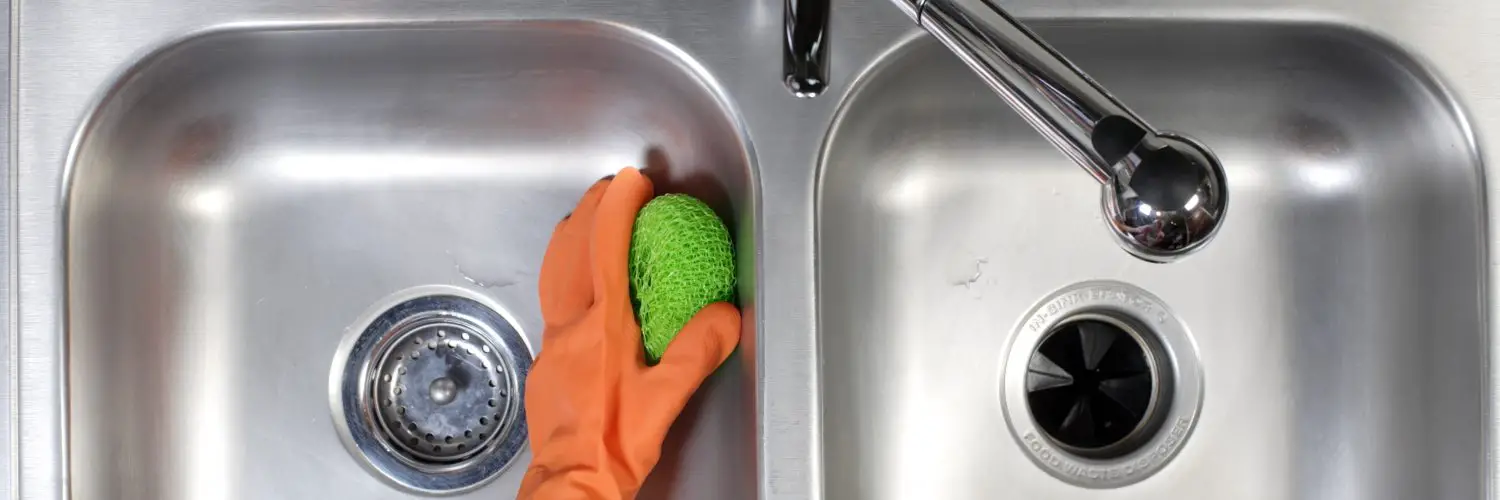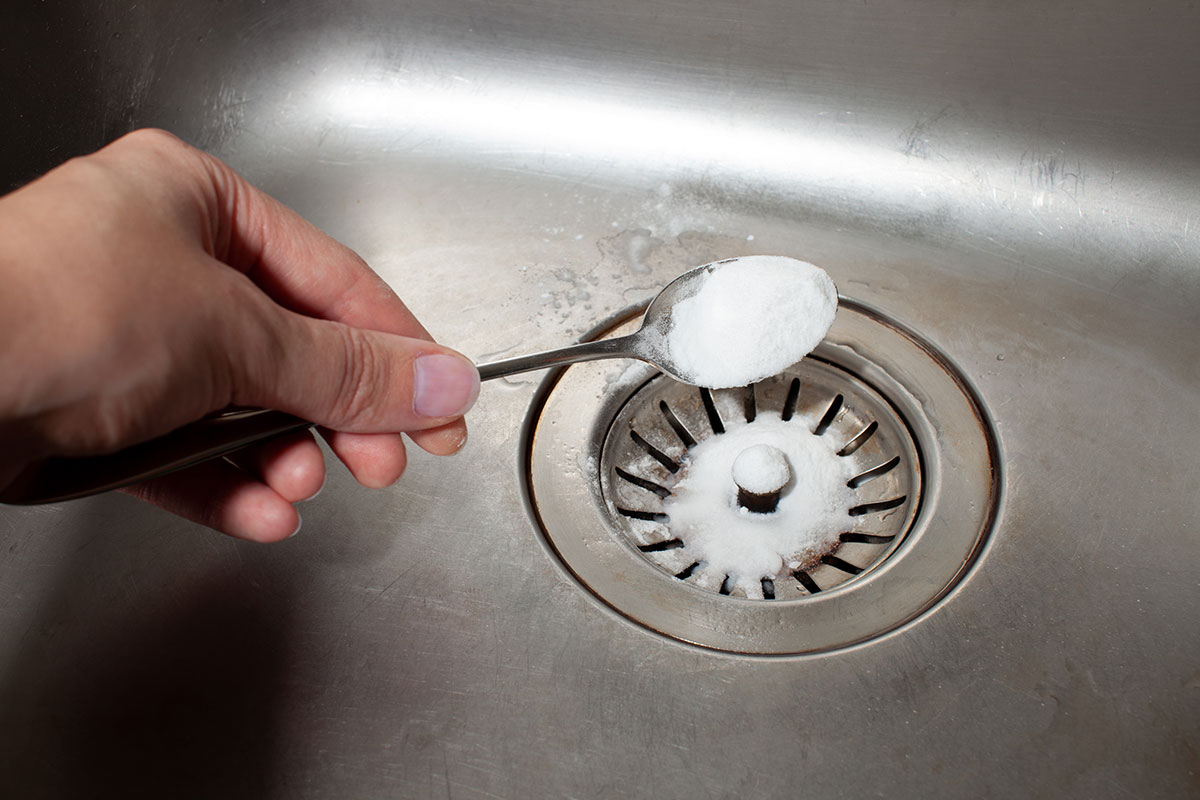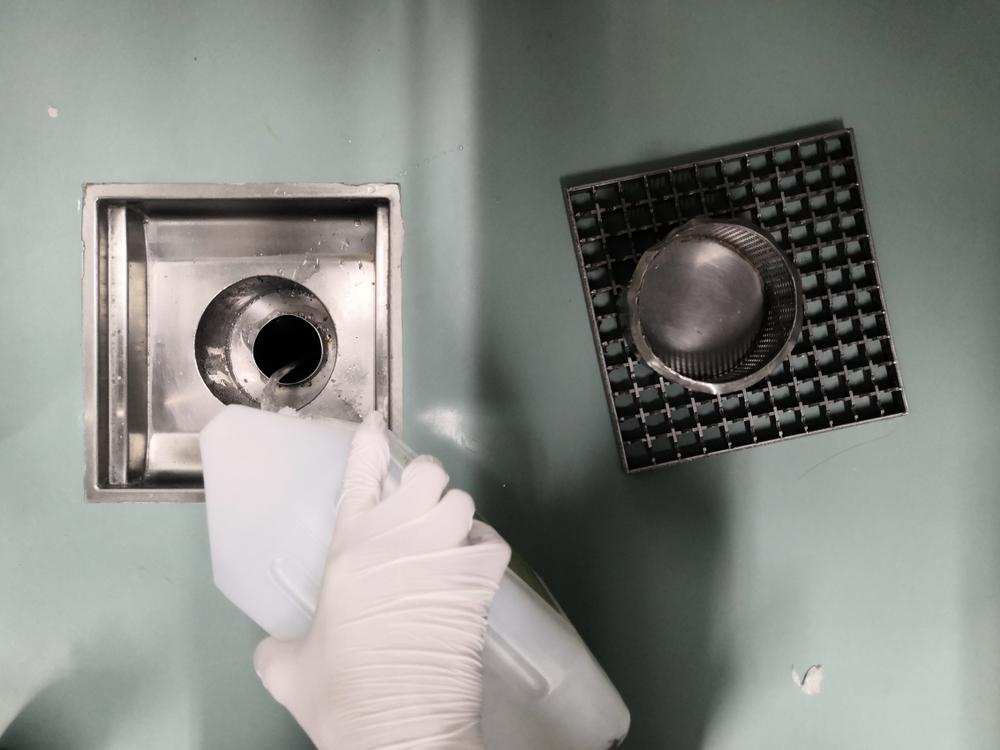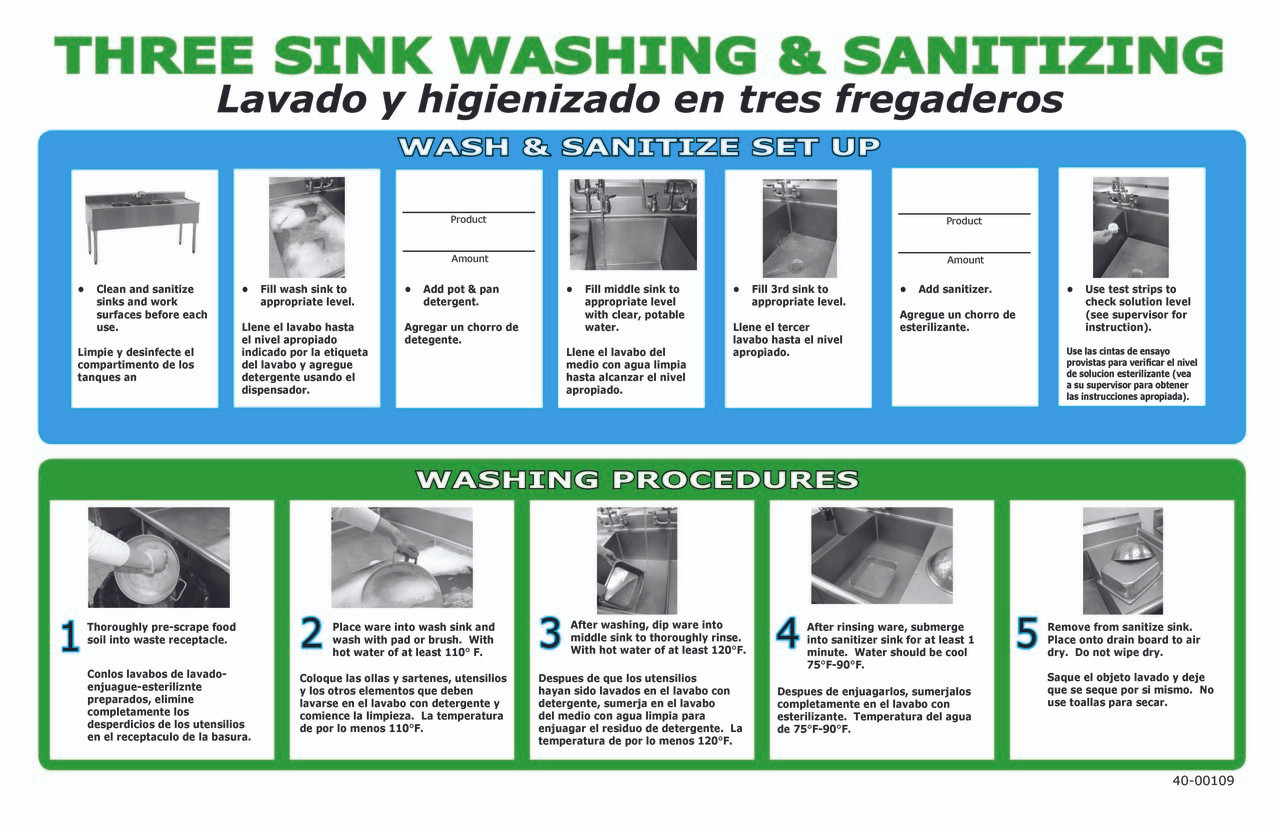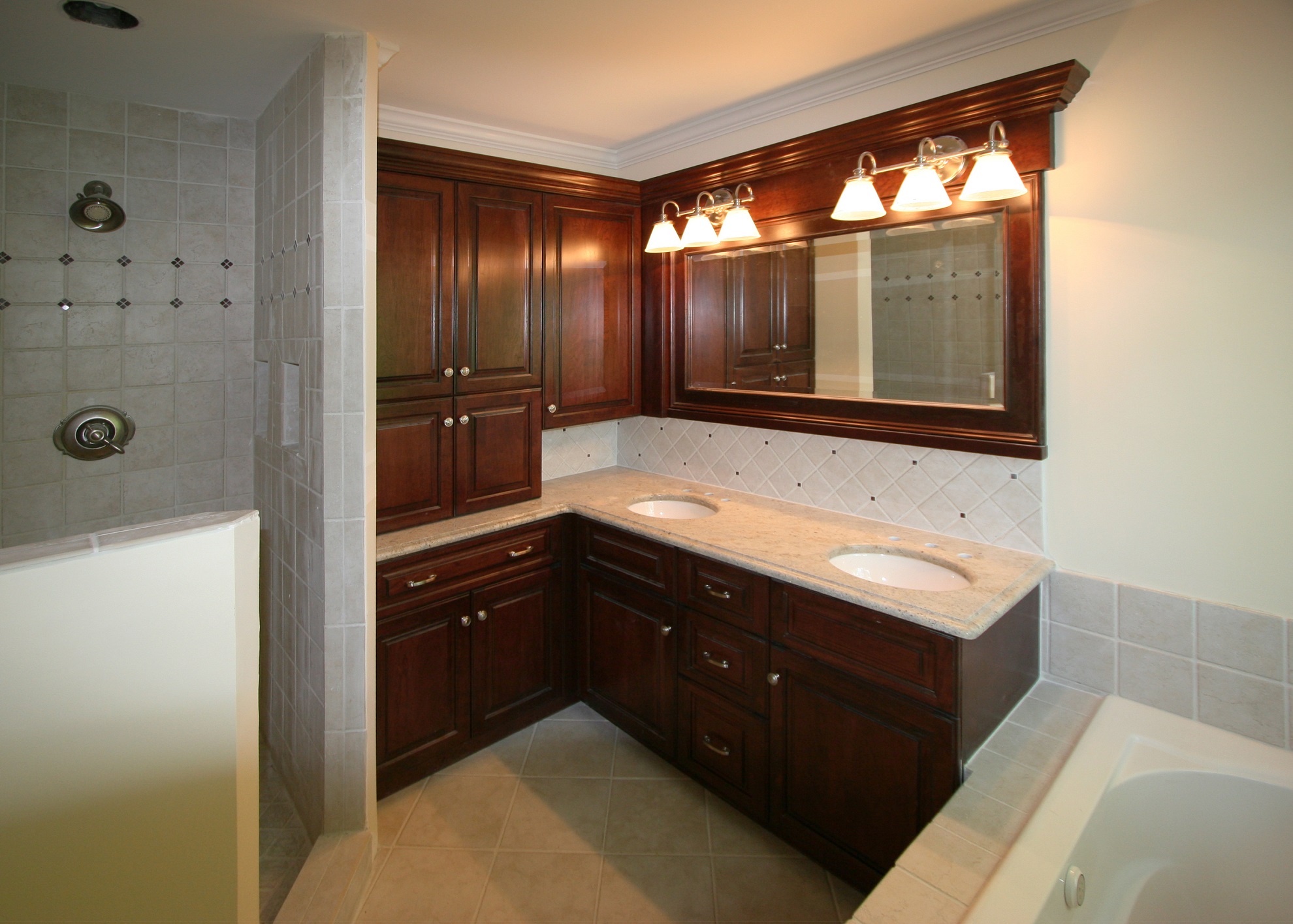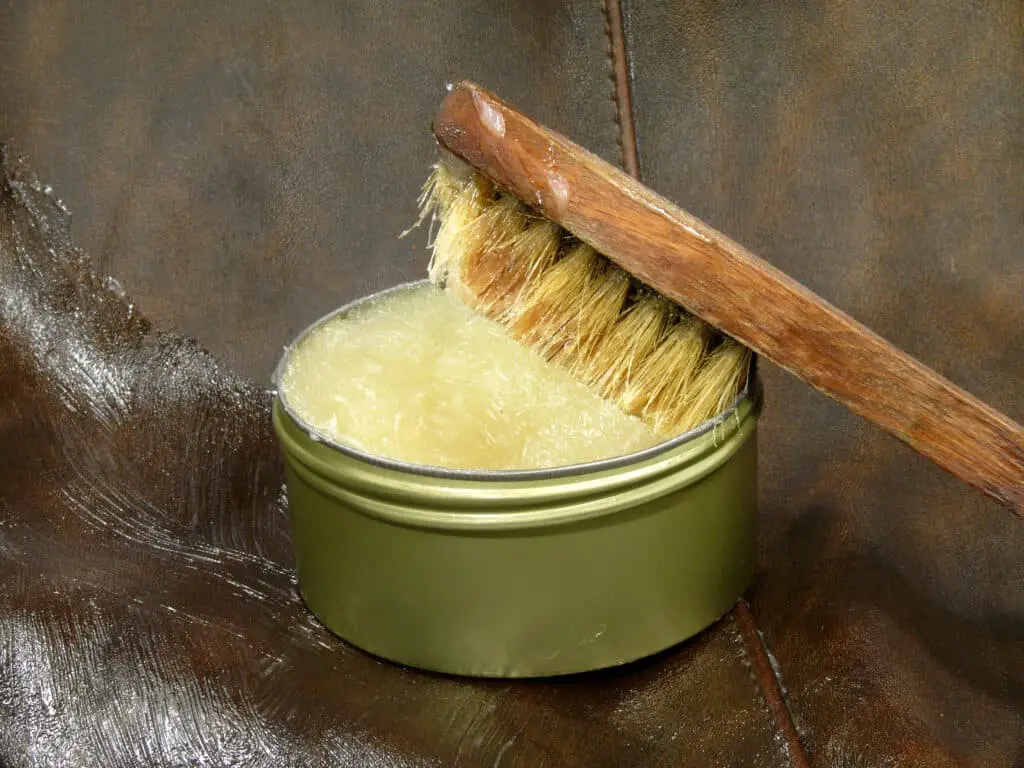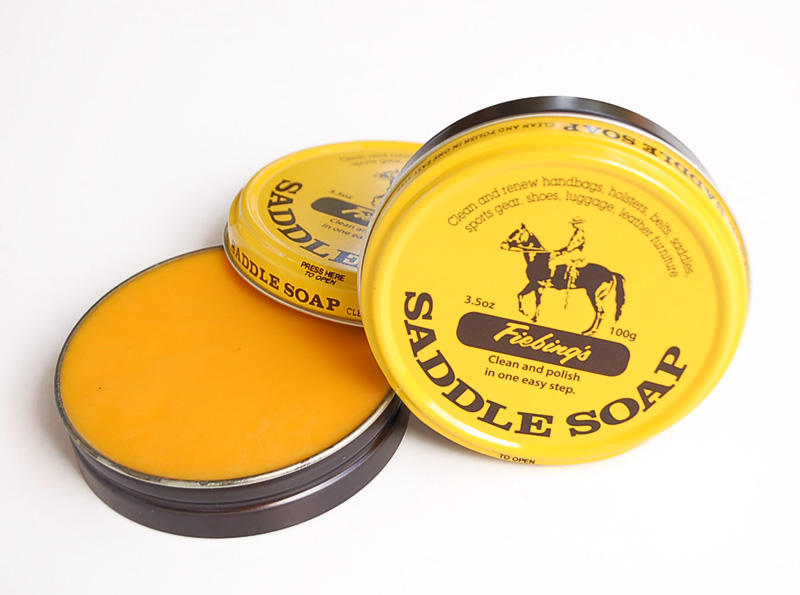If your kitchen sink is backed up and water is not draining properly, it can be a frustrating and messy problem to deal with. But don't worry, there are several methods you can try to unclog the sink and get it back to working properly. Here are some tips on how to unclog a kitchen sink.Unclog a Kitchen Sink
The first step in fixing a backed up kitchen sink is to determine the cause of the problem. It could be a simple clog caused by food particles and grease buildup, or it could be a more serious issue with your plumbing system. If the clog is not too severe, you can try some DIY methods to fix it. If the problem persists, it's best to call a professional plumber to inspect and fix the issue.How to Fix a Backed Up Kitchen Sink
There are several reasons why your kitchen sink may become backed up. Some common causes include food debris, grease buildup, foreign objects stuck in the drain, or a clog in the main sewer line. For minor clogs, you can try using a plunger or a homemade drain cleaner. However, more severe clogs may require professional help. It's important to address the issue as soon as possible to prevent further damage and potential health hazards.Kitchen Sink Backed Up: Causes and Solutions
If you're dealing with a minor clog, there are a few DIY methods you can try before calling a professional plumber. One option is to use a plunger to create suction and loosen the clog. Another method is to pour boiling water down the drain followed by a mixture of baking soda and vinegar. You can also try using a drain snake to physically remove the clog. These methods can be effective for simple clogs caused by food particles and grease buildup.DIY Methods for Clearing a Backed Up Kitchen Sink
As mentioned earlier, food debris and grease buildup are common reasons for a backed up kitchen sink. However, there are other possible causes that should be considered. For instance, if you have a garbage disposal, it could be malfunctioning and causing a blockage. Another possible reason is a clog in the main sewer line, which can be caused by tree roots, foreign objects, or a collapsed pipe. It's important to identify the root cause of the problem to properly address it.Common Reasons for a Backed Up Kitchen Sink
Prevention is key when it comes to avoiding a backed up kitchen sink. One of the best ways to prevent clogs is to avoid putting large food particles, grease, and other non-soluble items down the drain. You can also use a drain strainer to catch debris and regularly clean it out. Another preventive measure is to regularly pour boiling water down the drain to break up any buildup. Proper maintenance and care can go a long way in preventing clogs and other plumbing issues.How to Prevent a Kitchen Sink from Getting Backed Up
If your kitchen sink is constantly getting backed up, it's best to call a professional plumber for help. They have the necessary tools and expertise to properly diagnose and fix the issue. They can also provide regular maintenance services to prevent future clogs and keep your plumbing system in top condition. Don't hesitate to seek professional help if you're unable to unclog your kitchen sink on your own.Professional Plumbing Services for a Backed Up Kitchen Sink
A plunger can be a handy tool when it comes to unclogging a backed up kitchen sink. First, fill the sink with enough water to cover the rubber part of the plunger. Place the plunger over the drain and start plunging up and down vigorously. This will create suction and hopefully dislodge the clog. Be patient and repeat the process a few times if necessary. If the water starts draining, you know the clog has been cleared.Using a Plunger to Clear a Backed Up Kitchen Sink
If you're dealing with a stubborn clog, you may want to try using a chemical drain cleaner. These products can be found at most hardware stores and are designed to dissolve and break down clogs. However, they can also be harsh and damaging to your pipes if not used properly. Read the instructions carefully and wear protective gear when handling these chemicals. It's always best to try other methods first before resorting to chemical drain cleaners.Chemical Drain Cleaners for a Backed Up Kitchen Sink
There are a few signs that indicate your kitchen sink is backed up and needs to be fixed. The most obvious sign is water not draining or draining very slowly. You may also notice a foul odor coming from the drain, gurgling sounds, or standing water in the sink. If you notice any of these signs, it's important to address the issue promptly to prevent further damage and potential health hazards. In conclusion, a backed up kitchen sink can be a frustrating and messy problem to deal with. However, with the right tools and methods, you can unclog your sink and get it back to working properly. If the problem persists, don't hesitate to call a professional plumber for assistance. Remember to practice proper maintenance and care to prevent future clogs and keep your plumbing system in top condition.Signs that Your Kitchen Sink is Backed Up and Needs to be Fixed
Kitchen Sink Backed Up? Here's How to Fix It
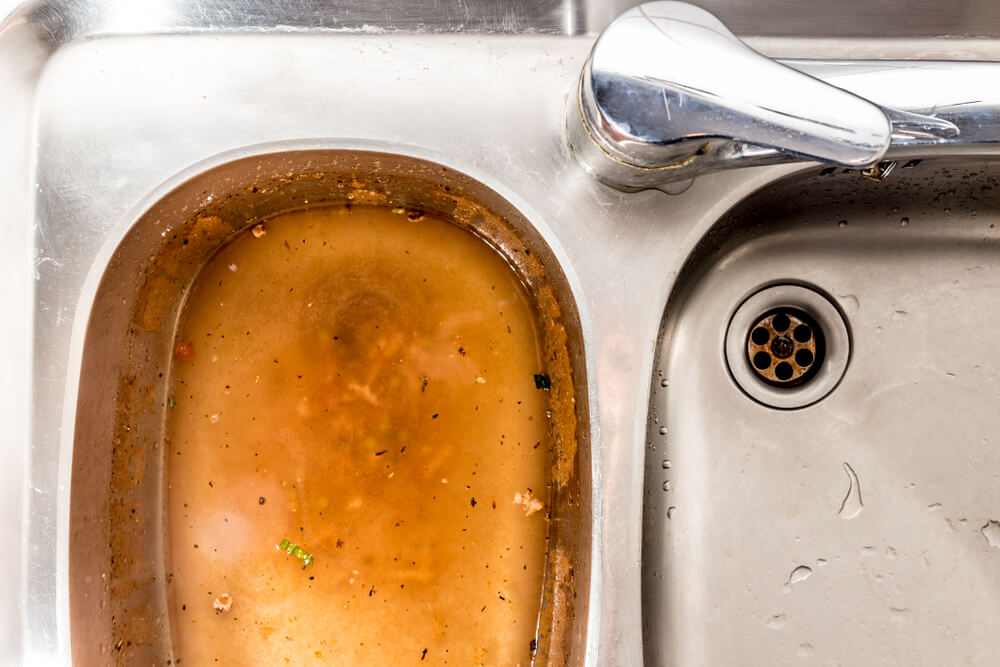
Common Causes of a Backed Up Kitchen Sink
 There's nothing more frustrating than a kitchen sink that won't drain properly. Not only can it disrupt your daily routine, but it can also lead to unpleasant odors and even potential water damage. The first step in fixing a backed up kitchen sink is understanding what could be causing the issue. Some common culprits include:
There's nothing more frustrating than a kitchen sink that won't drain properly. Not only can it disrupt your daily routine, but it can also lead to unpleasant odors and even potential water damage. The first step in fixing a backed up kitchen sink is understanding what could be causing the issue. Some common culprits include:
- Fats, oils, and grease (FOG): These substances can solidify and clog your pipes, especially when combined with other debris.
- Food scraps: Coffee grounds, eggshells, and other food scraps can get stuck in your pipes and create blockages.
- Soap scum and residue: Over time, soap scum and other residue can build up in your pipes and cause blockages.
- Foreign objects: Accidentally dropping items like utensils or small toys down the drain can also lead to a backed up sink.
Steps to Unclog Your Kitchen Sink
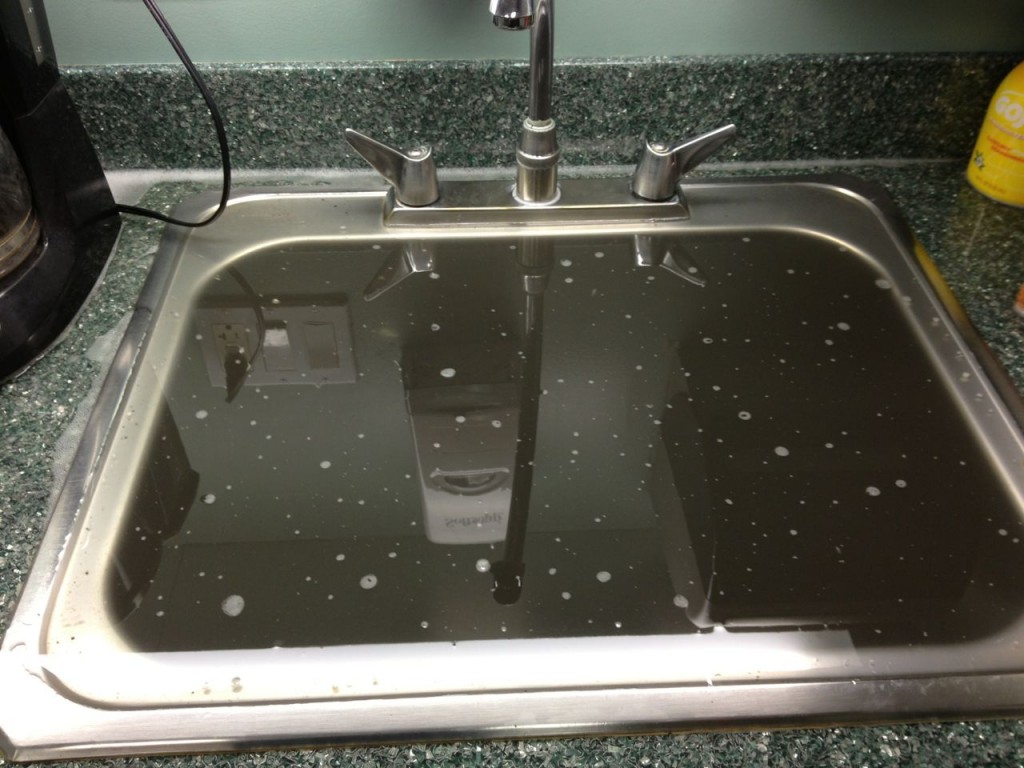 Fortunately, there are a few simple steps you can take to unclog your kitchen sink and get it back to working properly.
1. Try a Plunger:
Plungers are not just for toilets! Using a plunger on your kitchen sink can help to dislodge any blockages and get the water flowing again.
2. Use a Drain Snake:
If the plunger doesn't work, a drain snake (also known as a plumber's snake) can be used to physically remove any clogs in your pipes.
3. Create Your Own Drain Cleaner:
Instead of using harsh chemicals, you can create a natural drain cleaner using baking soda and vinegar. Simply pour 1/2 cup of baking soda down the drain, followed by 1/2 cup of vinegar. Let it sit for a few minutes, then rinse with hot water.
4. Call a Professional:
If the above methods don't work, it's best to call a professional plumber. They have the tools and expertise to properly diagnose and fix any issues with your kitchen sink.
Fortunately, there are a few simple steps you can take to unclog your kitchen sink and get it back to working properly.
1. Try a Plunger:
Plungers are not just for toilets! Using a plunger on your kitchen sink can help to dislodge any blockages and get the water flowing again.
2. Use a Drain Snake:
If the plunger doesn't work, a drain snake (also known as a plumber's snake) can be used to physically remove any clogs in your pipes.
3. Create Your Own Drain Cleaner:
Instead of using harsh chemicals, you can create a natural drain cleaner using baking soda and vinegar. Simply pour 1/2 cup of baking soda down the drain, followed by 1/2 cup of vinegar. Let it sit for a few minutes, then rinse with hot water.
4. Call a Professional:
If the above methods don't work, it's best to call a professional plumber. They have the tools and expertise to properly diagnose and fix any issues with your kitchen sink.
Preventing Future Clogs
 To avoid dealing with a backed up kitchen sink in the future, there are a few preventative measures you can take:
To avoid dealing with a backed up kitchen sink in the future, there are a few preventative measures you can take:
- Dispose of FOG properly: Instead of pouring fats, oils, and grease down the drain, dispose of them in a container and throw them in the trash.
- Use a drain strainer: Place a drain strainer over your sink to catch any food scraps or other debris before they can go down the drain.
- Regularly clean your pipes: Every few months, pour boiling water down your drain to help clear out any buildup in your pipes.
/plumber-unclogging-kitchen-sink-169270382-5797a9355f9b58461f27f024.jpg)






:max_bytes(150000):strip_icc()/how-to-unclog-a-kitchen-sink-2718799_sketch_FINAL-8c5caa805a69493ab22dfb537c72a1b7.png)





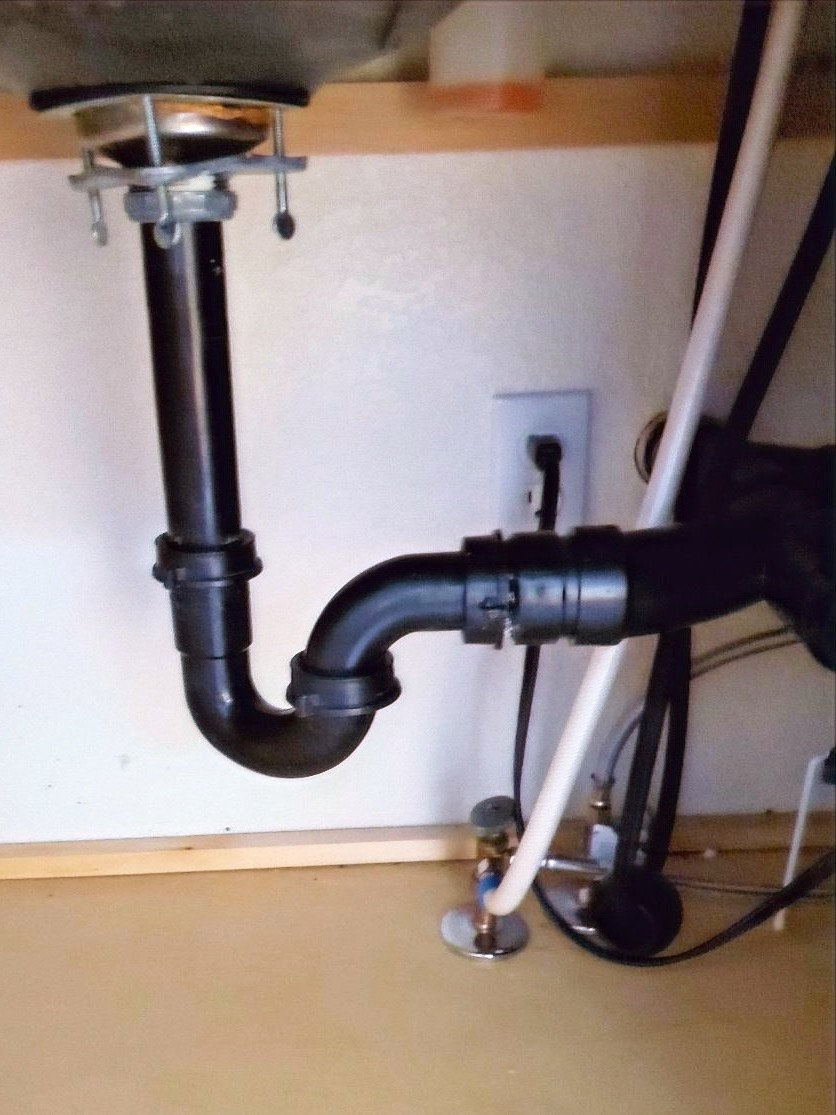






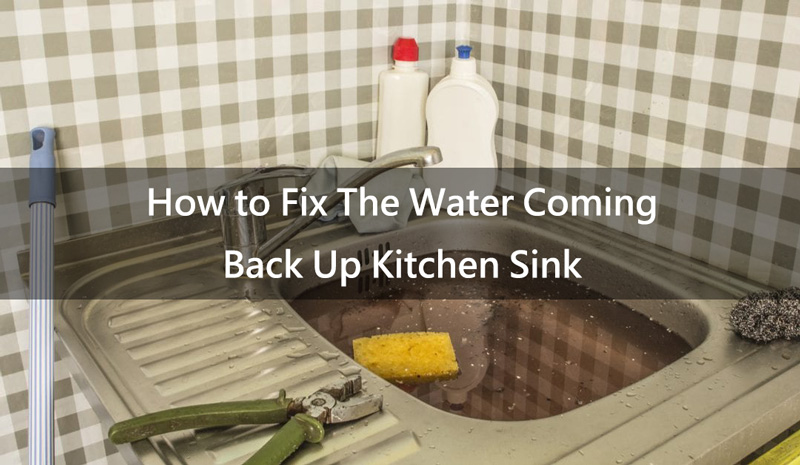


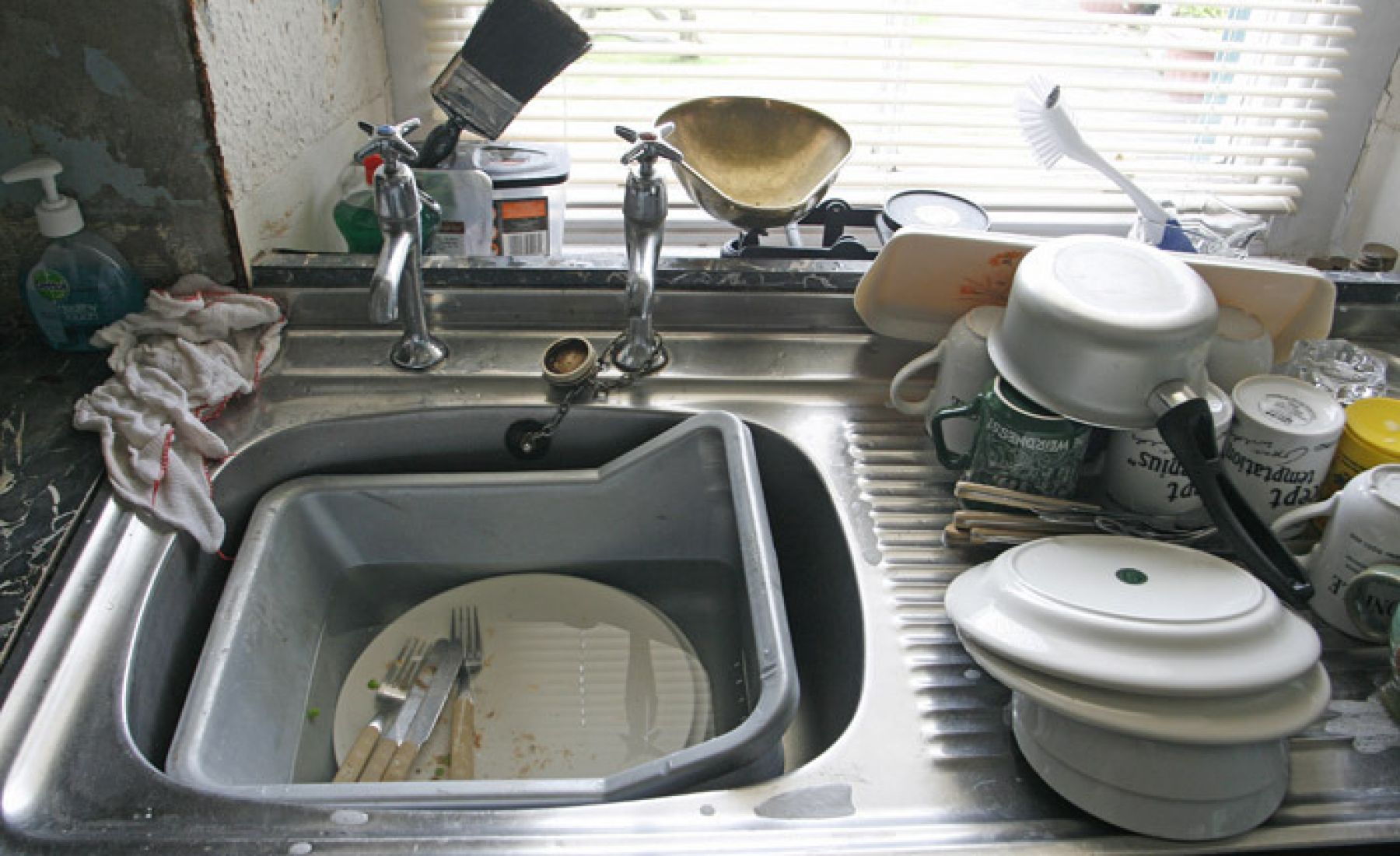

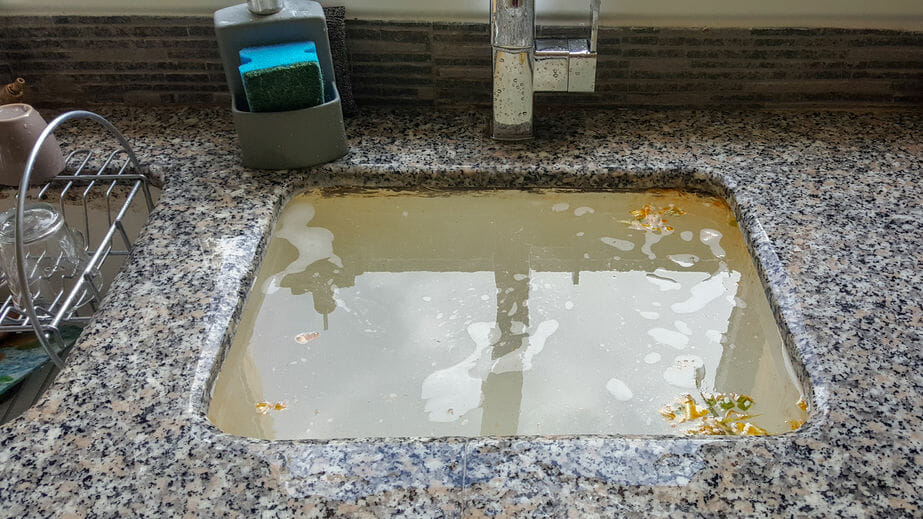







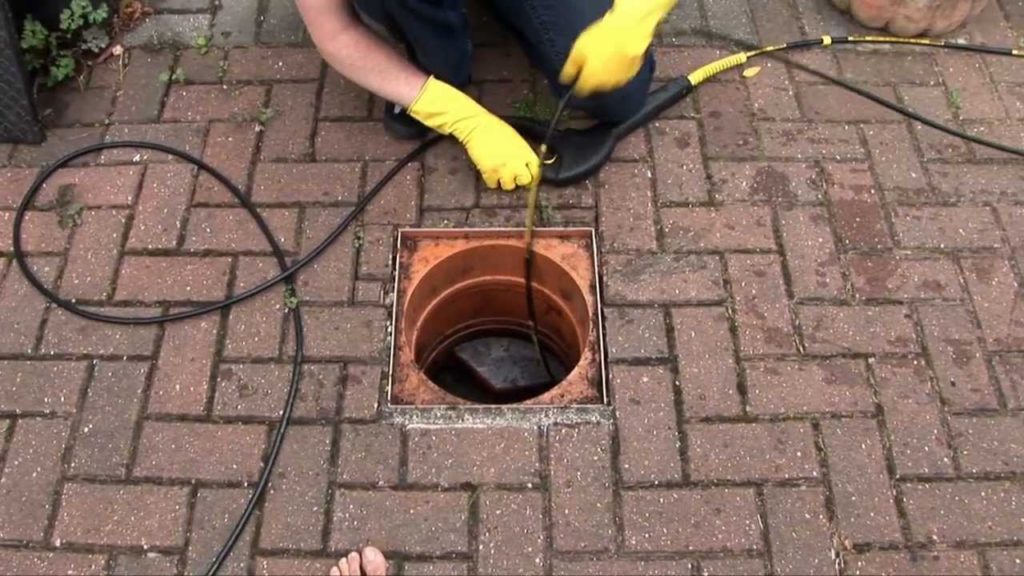

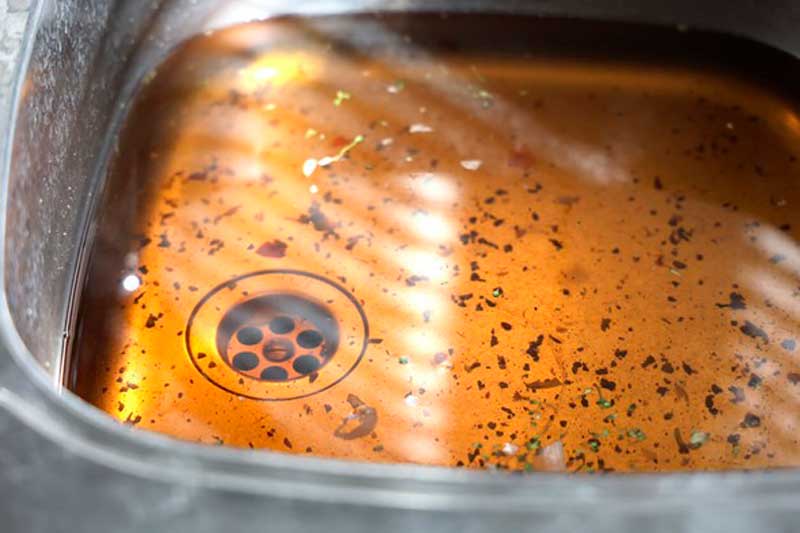




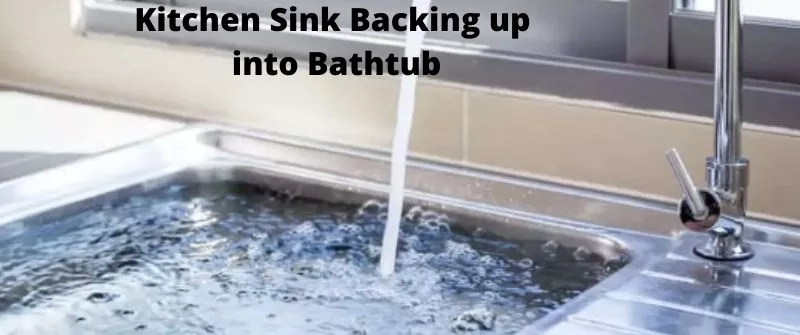






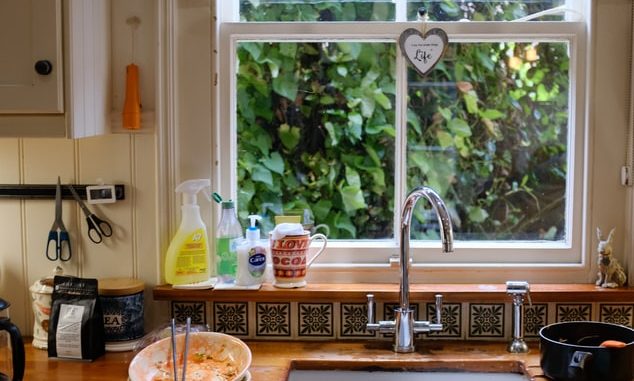

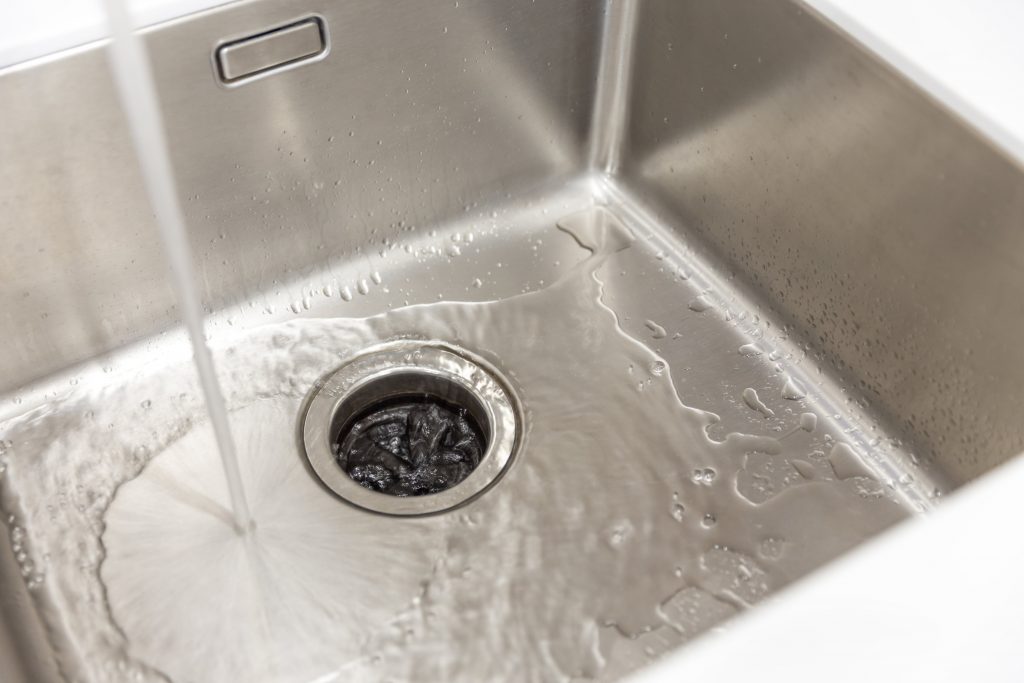
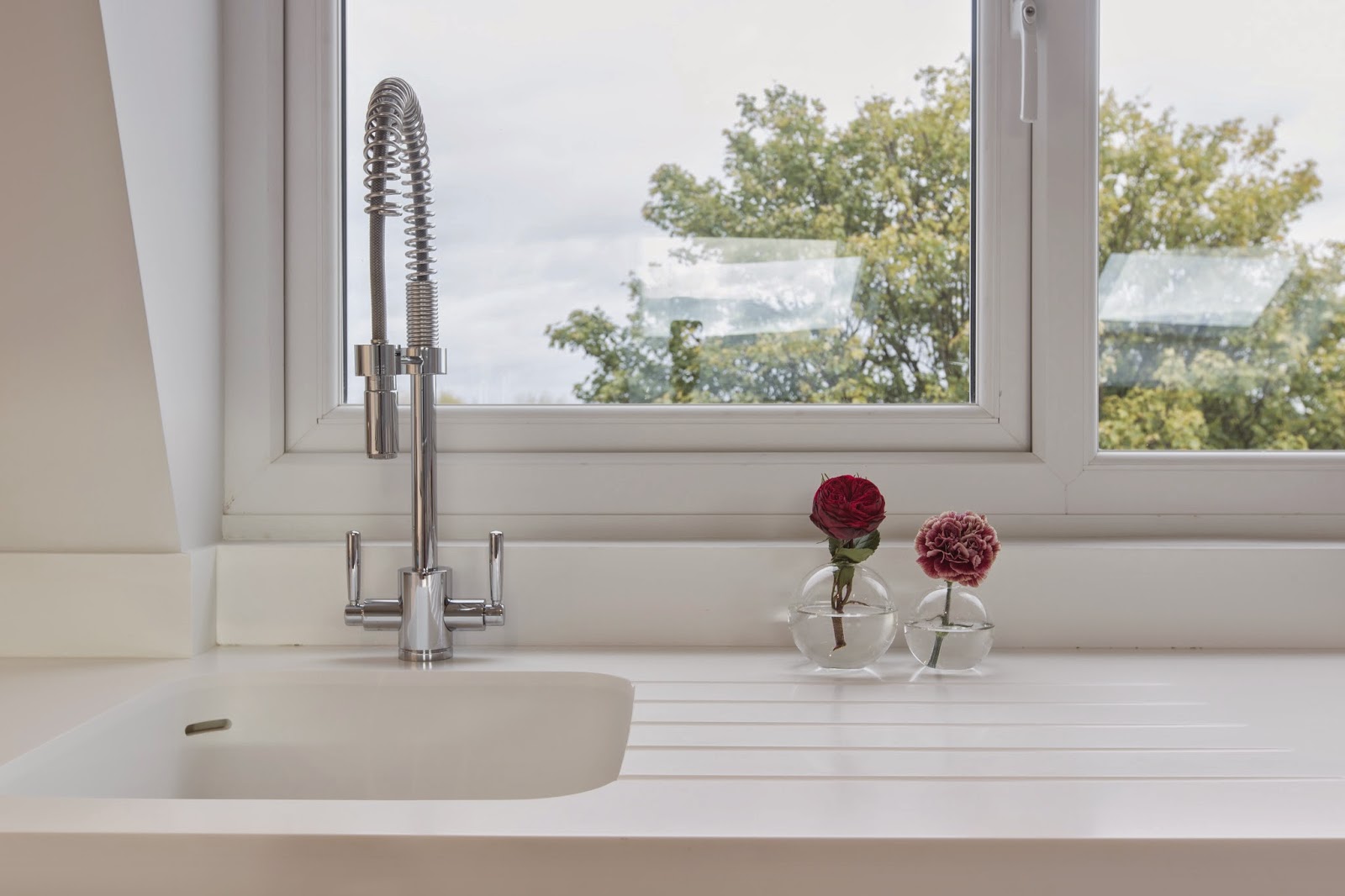
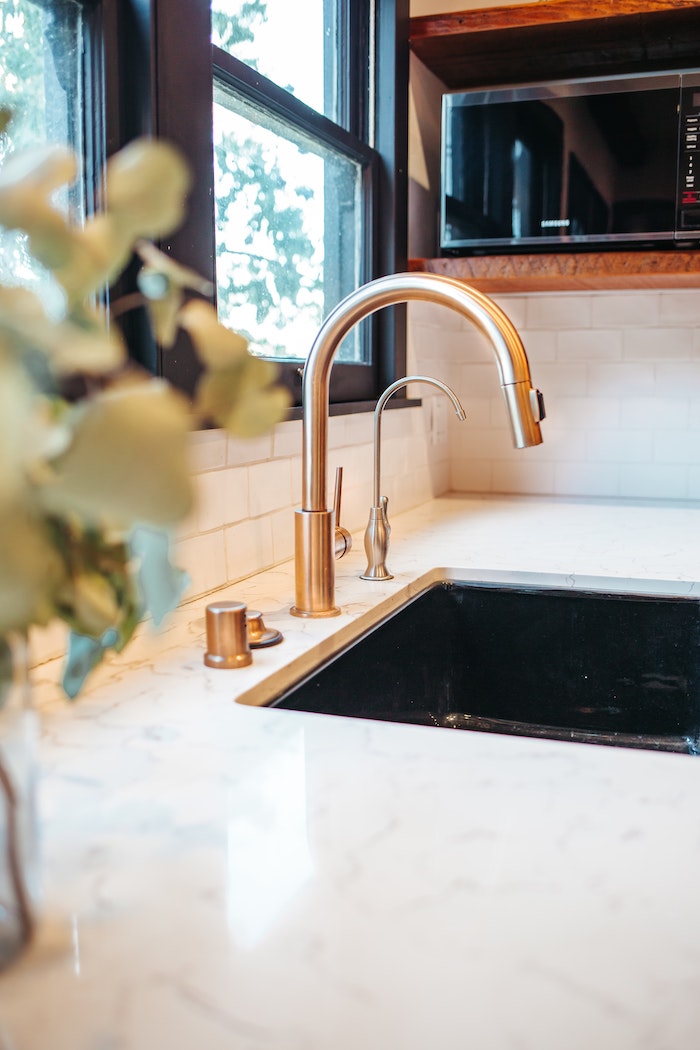





/how-to-install-a-sink-drain-2718789-hero-24e898006ed94c9593a2a268b57989a3.jpg)

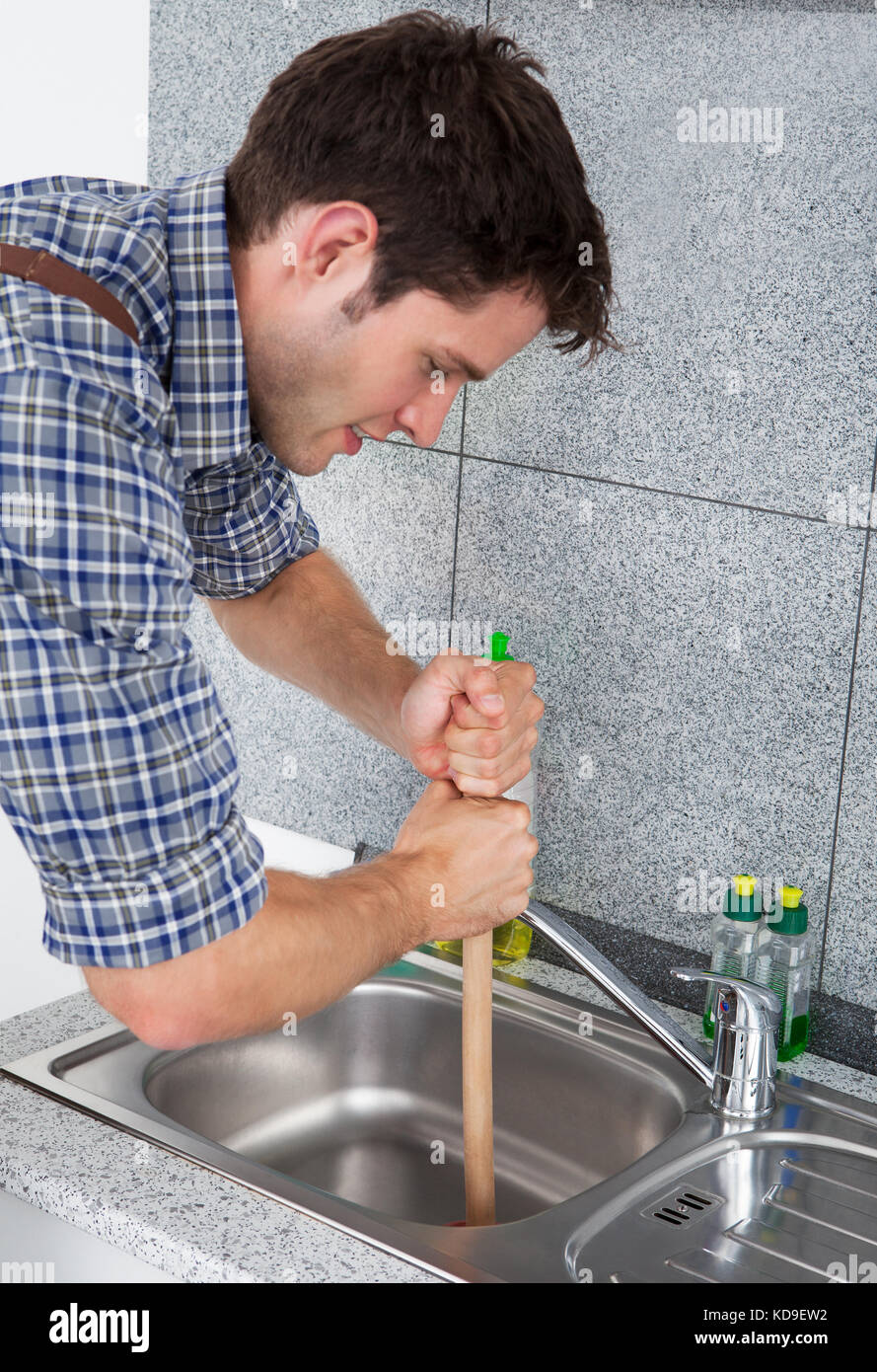

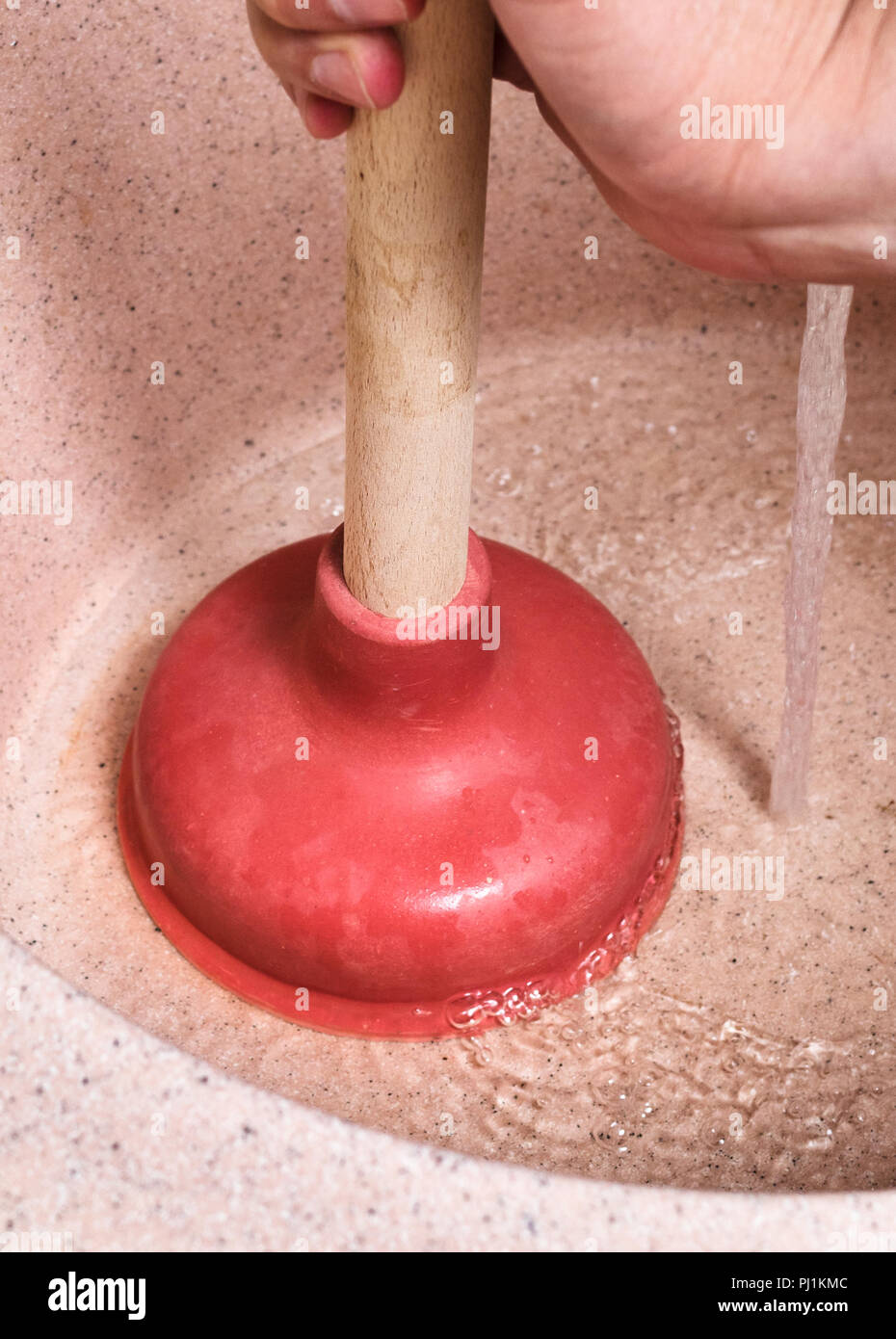
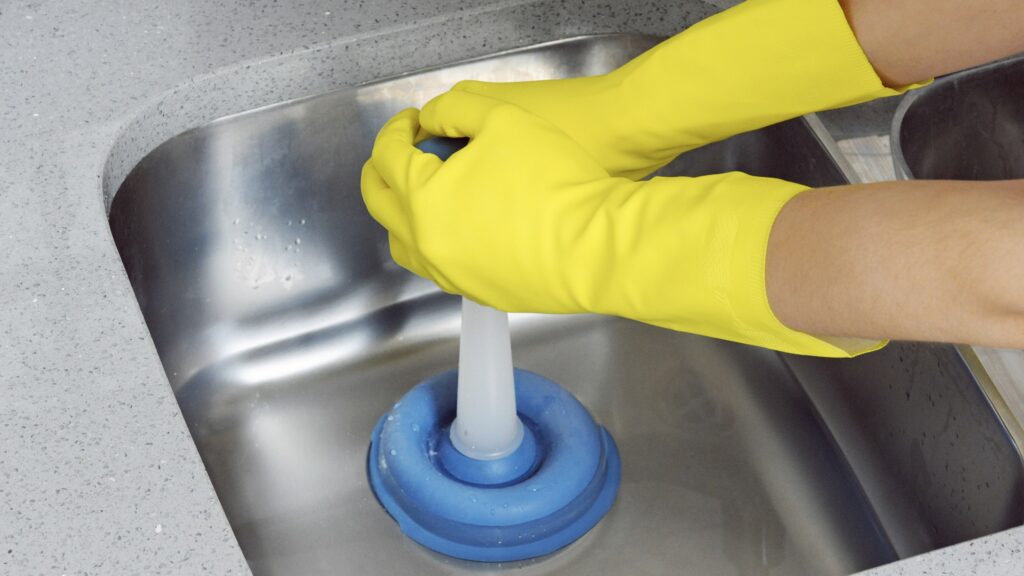
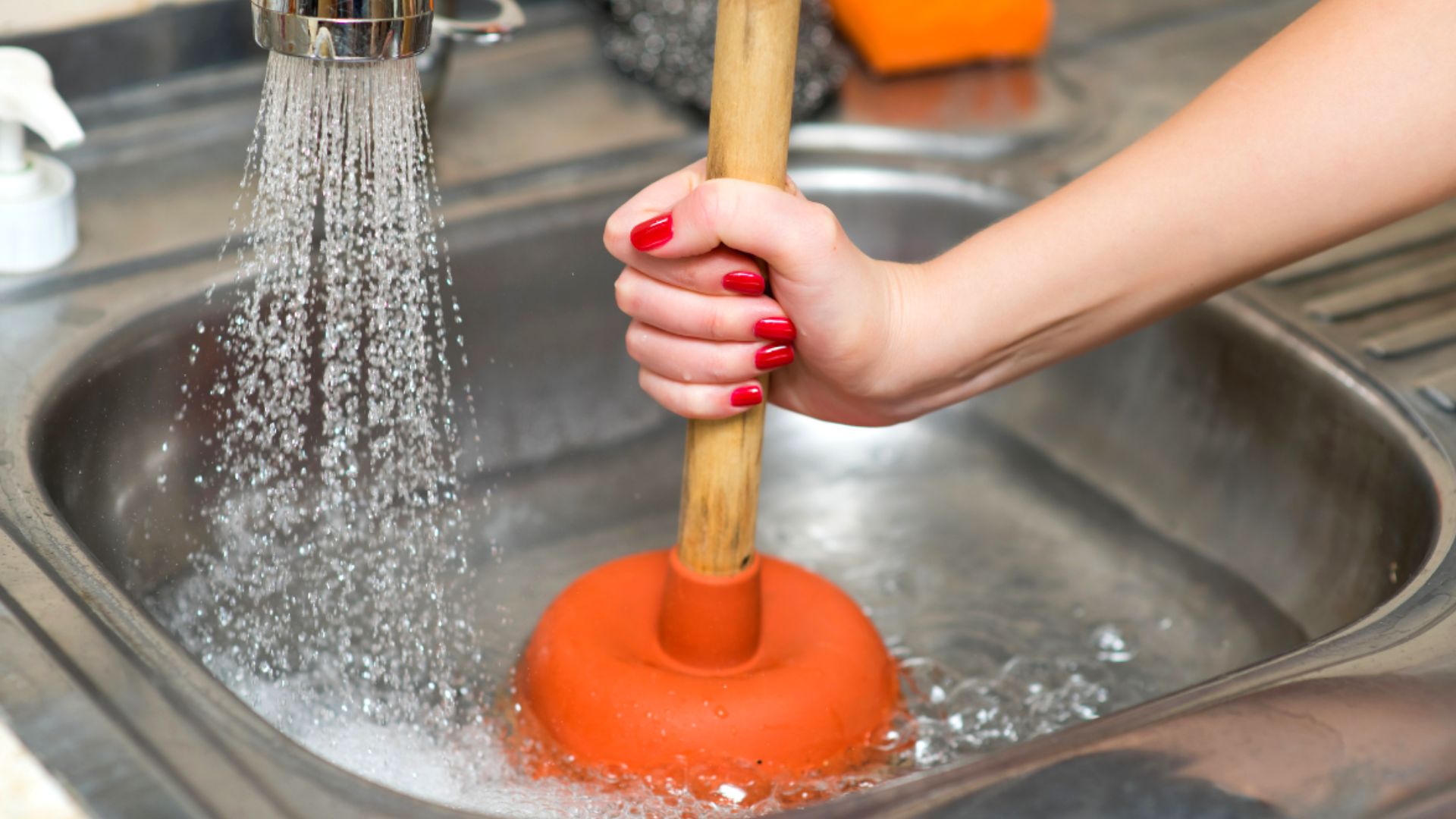




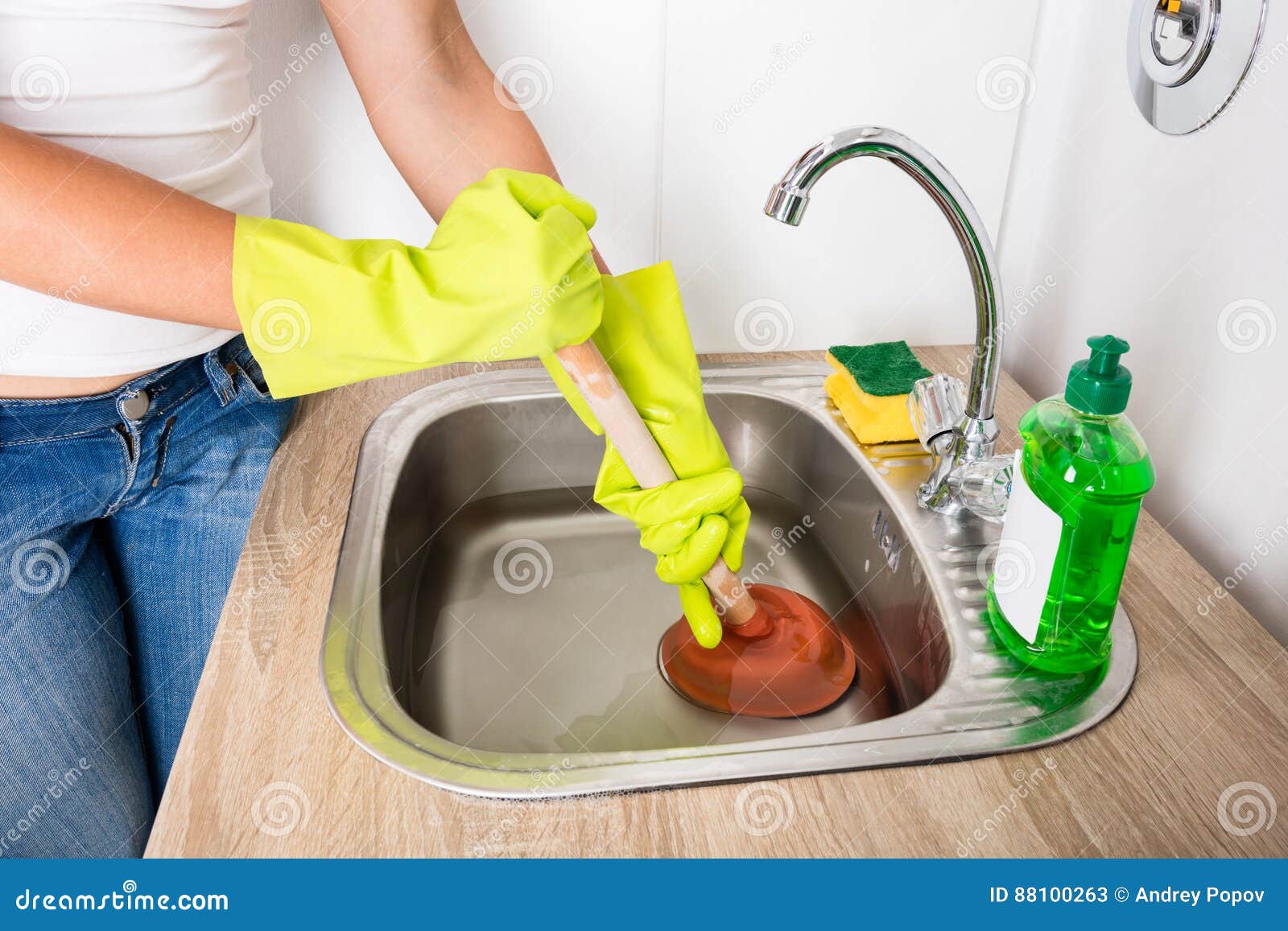



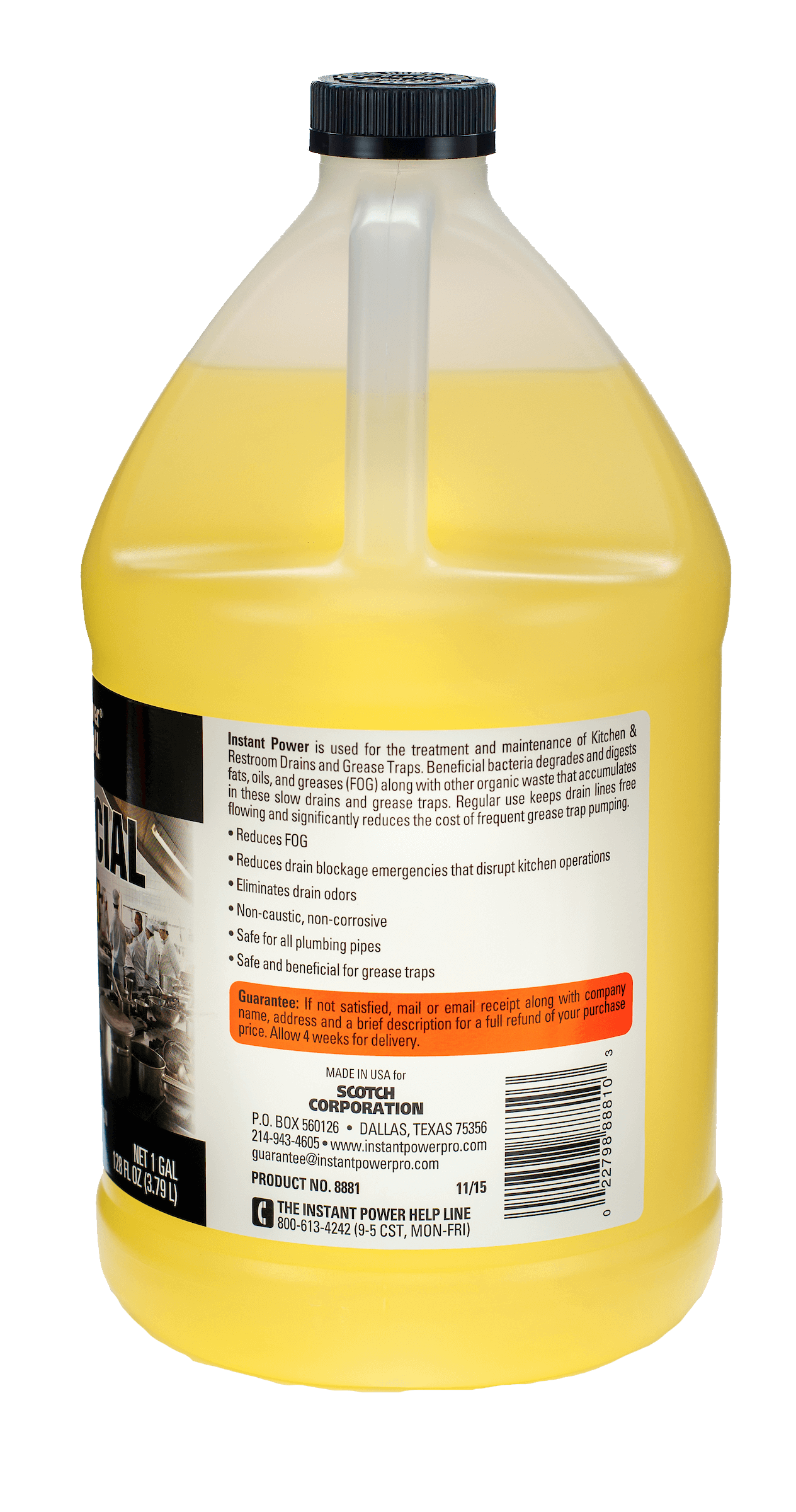
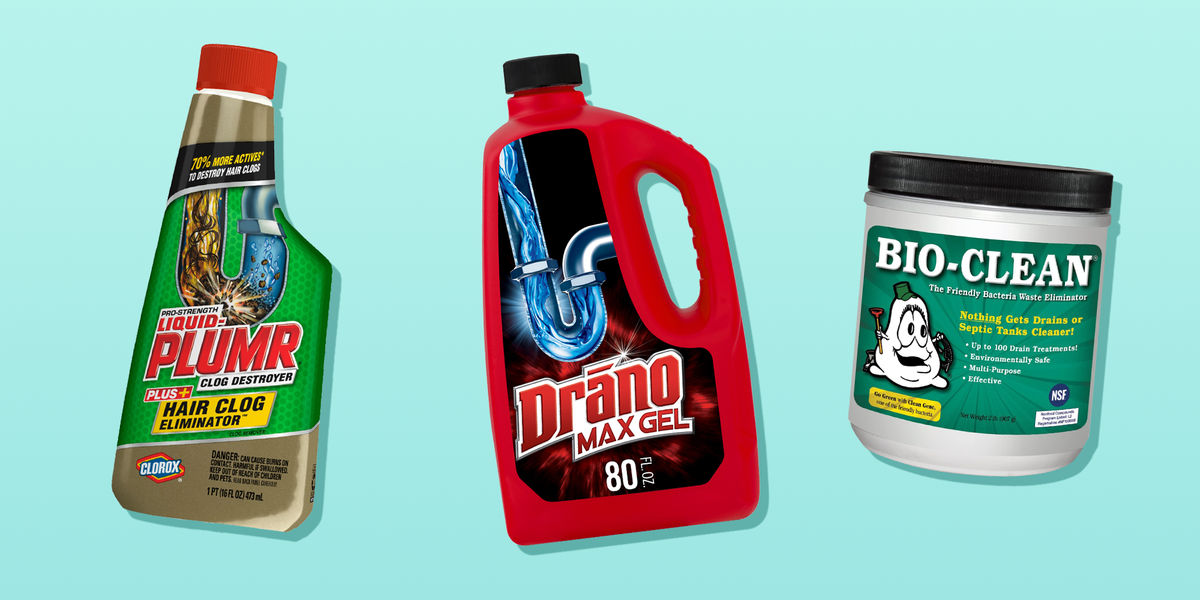
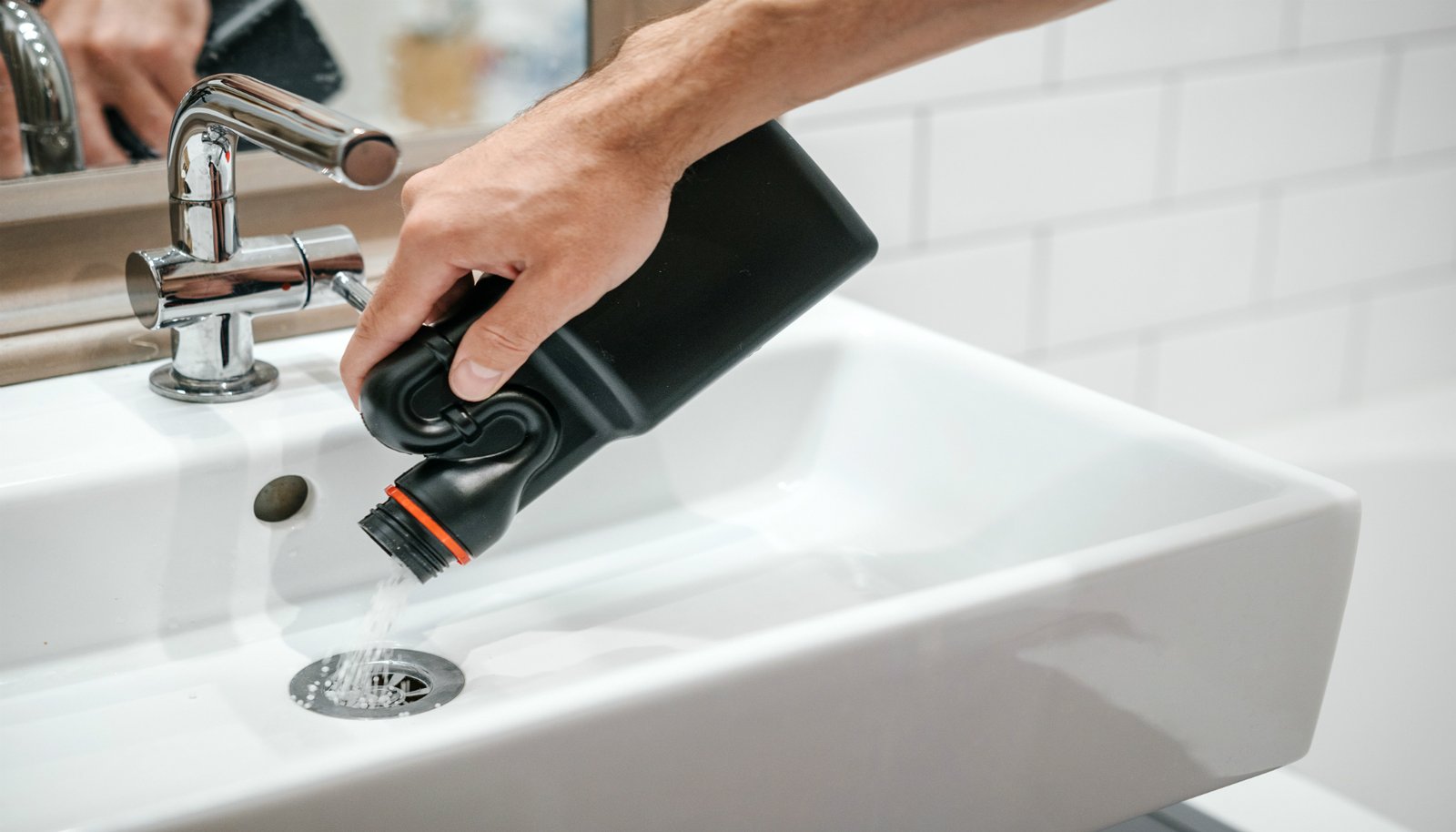
:max_bytes(150000):strip_icc()/pouring-chemicals-down-a-sink-80033290-5810e9425f9b58564c60a7e1.jpg)



